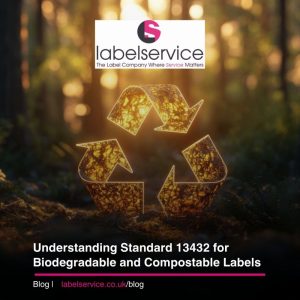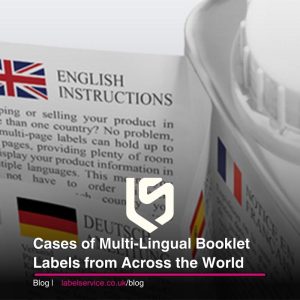A ban on some single-use plastic items has just been introduced across England. It will mean businesses are no longer allowed to supply some items like polystyrene cups and plastic cutlery. “This new ban is the next big step in our mission to crack down on harmful waste,” said Environment Minister Rebecca Pow. The government already has “world-leading bans” and taxes on other forms of plastic, she added. The new rules will “protect the environment and help to cut litter – stopping plastic pollution dirtying out streets and threatening our wildlife”. First announced in January this year, it is part of a goal to eliminate all “avoidable plastic waste” by 2042.
This ban does not include plastic bags, though. Scotland has moved faster and the ban coming into place in Wales includes more items like single-use plastic bags. So what’s the future of plastic bags in England?
Plastic bag charges on the rise
Are supermarket plastic bag charges doing enough? Aldi, Asda and Sainsbury’s have increased their plastic bag charges by up to 50% in the past two years. You’ll now pay anything from 10p to 60p for a reusable plastic bag at major supermarkets, with stores expected to donate the proceeds to good causes. Supermarkets supplied 133 million single-use plastic bags in the 2022-23 financial year – a huge 99% reduction on the 1.33 billion they supplied just after the charge was introduced in 2016-17.
On the face of it, this is good news. You’re certainly less likely to see carrier bags littering the road or caught in tree branches these days – but behind the scenes, is enough being done to recycle the plastic bags that are still used? And what is the most sustainable way to carry home your groceries?
Single-use plastic bags are a nightmare for the environment, taking decades to decompose in landfill. Most supermarkets have replaced their old thin bags with thicker versions, usually dubbed ‘bags for life’. These bags are stronger, so you can reuse them on multiple shopping trips. Once your bag for life does break, you can usually exchange it for another one free of charge, and supermarkets send the broken bag for recycling.
But this is where things get complicated. Most supermarkets accept all manner of soft plastics for recycling – not just shopping bags – so it’s hard to measure the quantity of plastic bags that do get recycled. If customers are choosing to recycle or reuse bags at home for other purposes – for example using them as bin liners for general waste – the bags could still end up in landfill.
Since recycling soft plastics and film can be tricky, especially if they’re contaminated with food waste, it’s possible that some won’t end up being recycled at all. The money collected from the sale of plastic bags is not mandated to be put towards projects that benefit the environment. The government’s plastic bag guide for businesses currently says: ‘Once you’ve deducted reasonable costs, it’s expected that you’ll donate the proceeds to good causes, particularly environmental causes.’
However, this doesn’t appear to be happening at every major supermarket. Income from plastic bags at Tesco is treated as general revenue, though Tesco says it spends more than what it earns from plastic bags on its community schemes. Asda told us it treats funds generated by plastic bag sales the same as sales of any other item it sells. Like all supermarkets, though, it does donate money to community projects. Other supermarkets said plastic bag sales fund charitable projects, though these aren’t always related to sustainability.
More than 7 billion harmful plastic bags have been prevented from blighting our streets and countryside thanks to the single-use carrier bag charge, new figures announced by Environment Minister Rebecca Pow show. A 5p charge was first introduced in supermarkets in 2015. Since then, usage at the main retailers – Asda, Marks and Spencer, Morrisons, Sainsbury’s, The Co-operative Group, Tesco and Waitrose – has dropped by more than 98%.
The average person in England now buys just two single-use carrier bags a year from these businesses, compared with around 140 in 2014 before the charge was introduced. The number of single-use carrier bags reported as sold by the main retailers was 133 million in 2022/23, down from 197 million in 2021/2022, representing a reduction of 33%. This is a huge drop from the 7.6 billion used in 2014. In 2021, the charge was increased to 10p and extended to all businesses. This has helped bring the number of bags used down by more than 35% from 627 million in 2019/20 to 406 million in 2022/23.
Marks and Spencer alternative
Marks & Spencer is swapping plastic bags for paper ones across all of its stores following a successful trial. The retailer has become the latest chain to opt for the more environmentally friendly bags following Morrisons, Waitrose and Aldi, which all use paper bags for customers – though some stores offer plastic bags as an option.
M&S, which has more than 1,000 stores across the UK, began a trial of the change at 10 of its shops in January. The chain has worked with the University of Sheffield to develop a bag that is made using renewable energy, as paper is more energy-intensive to produce than plastic. Paper bags also weigh more than plastic; this means transportation requires more energy, adding to their carbon footprint, according to research.
Marks & Spencer corporate affairs director, Victoria McKenzie-Gould, revealed the move in a blog post, saying the company hoped it would help to avoid “the mountain of plastic bags” that can build up in cupboards at home. She said: “For the vast majority who already reuse their own bags, which remains the most sustainable option, not a lot will change.”
Camden Council initiative
Camden Council has partnered with Raze to provide market shoppers with free eco-friendly reusable bags as part of a bid to crack down on single-use plastics. This comes as a national ban on single-use plastics came into effect on 1 October, with Camden going a step further to also cover plastic bags.
Raze bags, which are strong, water-resistant and carbon-neutral, have been provided to market traders and customers free of charge. To encourage customers to reuse the bags, each bag has a unique QR code that users can scan to connect to the Raze app each time the bag is used to gain ‘Raze coins’ to spend on a range of popular brands.
Launched at Inverness Street Market with an initial order of 5,000 Raze bags, Camden is creating an opportunity for traders, shoppers, and local businesses to trial this pioneering initiative. Cracking down on plastic use is a priority for the Council, and this new partnership with Raze is an innovative way to help us achieve this at some of the most popular shopping destinations in the borough. Through this initiative, not only does it help Camden to be a greener borough, shoppers will also get rewarded for reusing their bags – it truly is a win-win” says Councillor Danny Beales, Cabinet Member for New Homes, Jobs and Community Investment.
Alternatives
When choosing a bag, the key thing to think about is how often you’ll reuse it. The more you reuse it, the more sustainable it is as an option. A 2020 report from the Life Cycle Initiative (LCI), which looked at the impact of several types of plastic bags over 10 years, said: ‘The number of times a bag is used directly influences its environmental impacts. For instance, if a bag is used for shopping twice instead of once, it has only half the environmental impact per shopping round.
Paper bags
Paper is seen as being more recyclable than plastic, which might be why M&S has started selling reusable paper bags in its stores. Paper shopping bags tend to be less durable than the plastic alternative, however. And according to the LCI report, a paper bag’s climate impact can vary greatly, depending on factors like the fuel used in the production.
Reusable plastic bags
Waste charity Wrap says you can reuse plastic bags ‘well over 50 times’ depending on what they’re made from. When plastic bags are incinerated, the CO2 they release is harmful to the planet, whereas the CO2 emissions from incinerating paper bags are part of the natural carbon cycle, according to the LCI report. On the other hand, if a plastic bag and a paper bag both end up in landfill, the methane emissions from paper bags will actually be more harmful.
Compostable and biodegradable bags
On the surface, these seem like a good option. But biodegradable bags are thinner and weaker, so you’re less likely to reuse them.
Cotton tote bags
These tend to be the strongest bags people use for their shopping, but they’re only good for the environment if you reuse them many, many times. According to the LCI study, you need to use a tote bag 50 to 150 times for it to have the same environmental impact as one single-use plastic bag. In short, if you already own a tote bag, don’t buy another – just reuse that one again and again.
Clearly, the question of which bags are most sustainable is very complicated. The only impact-free way of getting your shopping home would be to carry it without using any bags. But assuming you’re buying too much for that to be possible, try to reuse any bags you already have – and always recycle them once they’ve become unusable.
Other countries
Over 100 countries now have a full or partial ban on single-use plastic bags. Between 2010 and 2019, the number of public policies intended to phase out plastic carryout bags tripled. The results of such tough rules are starting to show. Bangladesh became the first country to introduce a ban on plastic bags back in 2002.
Globally, bans are imposed with various degrees of severity. In Kenya, manufacturing the bags – which clog the country’s infrastructure and cause flooding – can land you with up to four years in prison or a €36,000 fine. In Europe, 18 countries have imposed bans on thin plastic bags – including France, Germany, Italy, Iceland, and Albania. A further 23 countries require consumers to pay a fee. Two more – Switzerland and Norway – allow the plastic industry to impose a ‘voluntary charge’ on the use of the bags.
Plastic bag consumption is highest in the Baltic and Nordic countries, Eurostat data from 2019 reveals. Latvia (284 bags per person, per year) and Lithuania (332) consumed far more plastic bags than any other European country. This could change, however as from 2025, Latvian shops will no longer be permitted to give away free plastic bags. A similar prohibition will come into force in Lithuania this year.
The lowest usage can be found in Portugal (8), Belgium (17) and Poland (23). Portugal banned the bags in 2021, two years after Poland. But plastic bag taxes are a different story. In Ireland – where plastic bag usage dropped 90 per cent after the implementation of a tax – the policy was very popular. “The Irish plastic bags levy has proved so popular with the Irish public that it would be politically damaging to remove it,” wrote researchers in a 2007 paper.

















